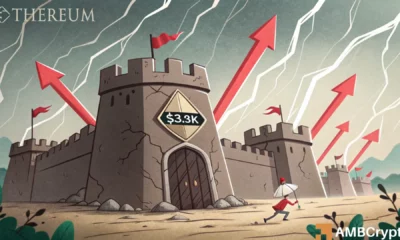Is India mulling the taxation of foreign crypto-exchanges to the tune of 18%?

The last few months of the year have been interesting yet dramatic for the cryptocurrency market. Not only due to the wider price volatility, but on the regulation front as well. On one hand, while El Salvador legalized BTC as legal tender, China on the other hand cracked down on cryptos and mining once again. While the world’s largest country by population left a deep scar on the community with its actions, any regulations in the 2nd most populated country, be it bearish or bullish, are also bound to affect the crypto-community.
Crypto-investments in India last quarter went up by 19,900% from $200 million to $40 billion. Ergo, crypto is gaining traction as more individuals, firms, etc. get exposed to the asset class, regardless of the lack of regulatory clarity.
Now, even though the call for better transparency hasn’t been fully acknowledged by the government, a development in this regard did make headlines once again.
As per a recent report published by the Economic Times,
“Foreign cryptocurrency trading platforms with customers from India may have to pay an 18 percent goods and services tax (GST).”
As things stand, almost all such trading platforms do not pay taxes now. However, should the new proposition come into effect, this narrative will change.
But WHY?
Under Indian law, almost any transaction that involves the consumption of goods and services by Indians attracts GST. Similarly, the tax department would categorize the services provided by crypto-exchanges operating in India as OIDAR.
Furthermore,
“Overseas companies that provide Online Information Database Access and Retrieval (OIDAR) services and do not have a physical presence in India can appoint a person who will be liable for paying taxes.”
This proposed rule, if approved, could do a lot of damage to the crypto-community in this country. In fact, the proposal comes a few days after it was reported,
“Indian cryptocurrency exchanges are scrambling to secure viable, permanent payment solutions to ensure seamless transactions after banks and payment gateways started cutting ties with them.”
In fact, various Indian banks have followed and supported the RBI’s position, a bearish one, in the past.
Right now, there are many local investors who currently trade on foreign exchanges. What’s more, there has also been an exodus of crypto-exchange executives shifting their base to Singapore or Dubai to escape restrictions in India.
What’s next? More to follow? Also, with the proposed tax scheme, will Bitcoin be legal in the country? Well, only time will tell.






